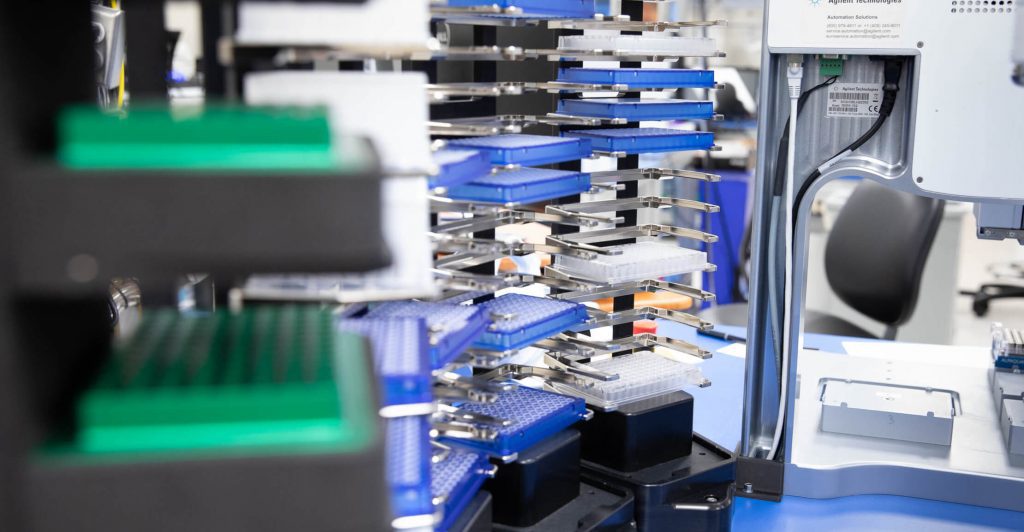The human immune system can recognize and kill cancer cells growing in the body by sensing mutated proteins on the surface of cancer cells, known as antigens. A class of drugs called checkpoint inhibitors help the immune system in this process, improving survival for people with advanced cancer. Unfortunately, only some patients currently benefit from this treatment, because cancer cells develop resistance by mechanisms which are poorly understood.
Calico scientists are working to understand the mechanisms by which cancer cells develop resistance and specifically how natural killer (NK) cells play a role in recognizing and killing cancer cells. This could be a valuable area of research because NK cells do not rely on antigen presentation to kill cancer cells.
In the paper, titled “Systematic identification of cancer cell vulnerabilities to natural killer cell-mediated immune surveillance,” published in eLife, Calico scientists used CRISPR/cas9 genetic screening to discover interventions that might help NK cells kill cancer cells.
What they found was unexpected. The researchers discovered that by disrupting a gene called DCAF15, leukemia cells became more susceptible to NK cells, thus opening up DCAF15 as a new target for further research. Furthermore, an analysis of existing data of people with leukemia showed that those with less DCAF15 protein expression had a better chance of survival.
